For the 2018 International Women’s Day we want to highlight the brilliant work of Canadian women who have challenged and informed audiences with their activist films and videos for nearly 30 years. The collection of videos featured below focus on many aspects at the intersection of HIV and women’s experience, from lesbians and sex workers to immigrants and women of colour. The variation in content is matched by variation in form: narratives, animations, documentaries, experimental shorts, public service announcements, featurettes, and features.
While we wish all of these videos were available for streaming online, some are not. All titles are linked to streaming video or information about distributors that carry these titles.
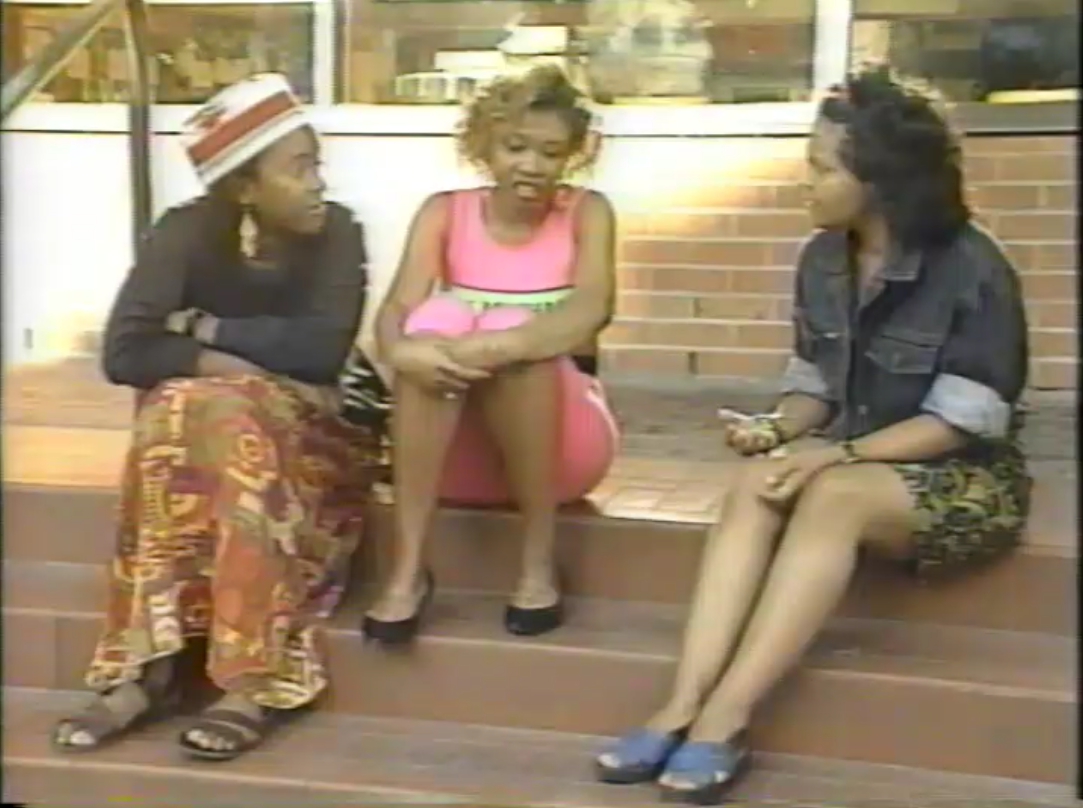 Debbie Douglas & Gabrielle Micallef (1960-2011) – AnOther Love Story: Women and AIDS (1990)
Debbie Douglas & Gabrielle Micallef (1960-2011) – AnOther Love Story: Women and AIDS (1990)
Beginning with an opening scene that mirrors Lizzie Borden’s Working Girls (1986), a lesbian interracial couple wake up in bed with one rushing to get up and out the door. In AnOther Love Story, the young woman rushing out the door is headed to a doctor’s appointment to do an HIV test. The narrative built around this couple’s relationship structures the video which aims to illustrate the issues facing women and HIV, and lesbians and racialized women in particular. Douglas & Micallef’s video appeared as part of the Toronto: Living With AIDS cable access series along with Glace Lawrence‘s The Colour of Immunity (1991) that we’ve written about previously. AnOther Love Story was also recently featured at an encore screening in Montreal for the 10th edition of Massimadi. Unfortunately, this video is not available streaming online, but it is available from Vtape.
Esther Valiquet (1962-1994) – Le Récit d’A (1990); Le Singe Bleu [The Measure of Your Passage] (1992)
Le Récit d’A, The Story of A, is an experimental travel diary. The video combines medical imaging, desert landscapes, and images from the author’s trip to visit a friend named Andrew in San Francisco. The accompanying voiceover track switches between philosophical musings about mortality and what we leave behind vis-a-vis Susan Sontag and Edmond Jabès, and an interview with Andrew, a gay friend struggling to survive with AIDS. Jumping between English and French, this very Montreal short is credited with reanimating the Quebec art scene to respond to the crisis.
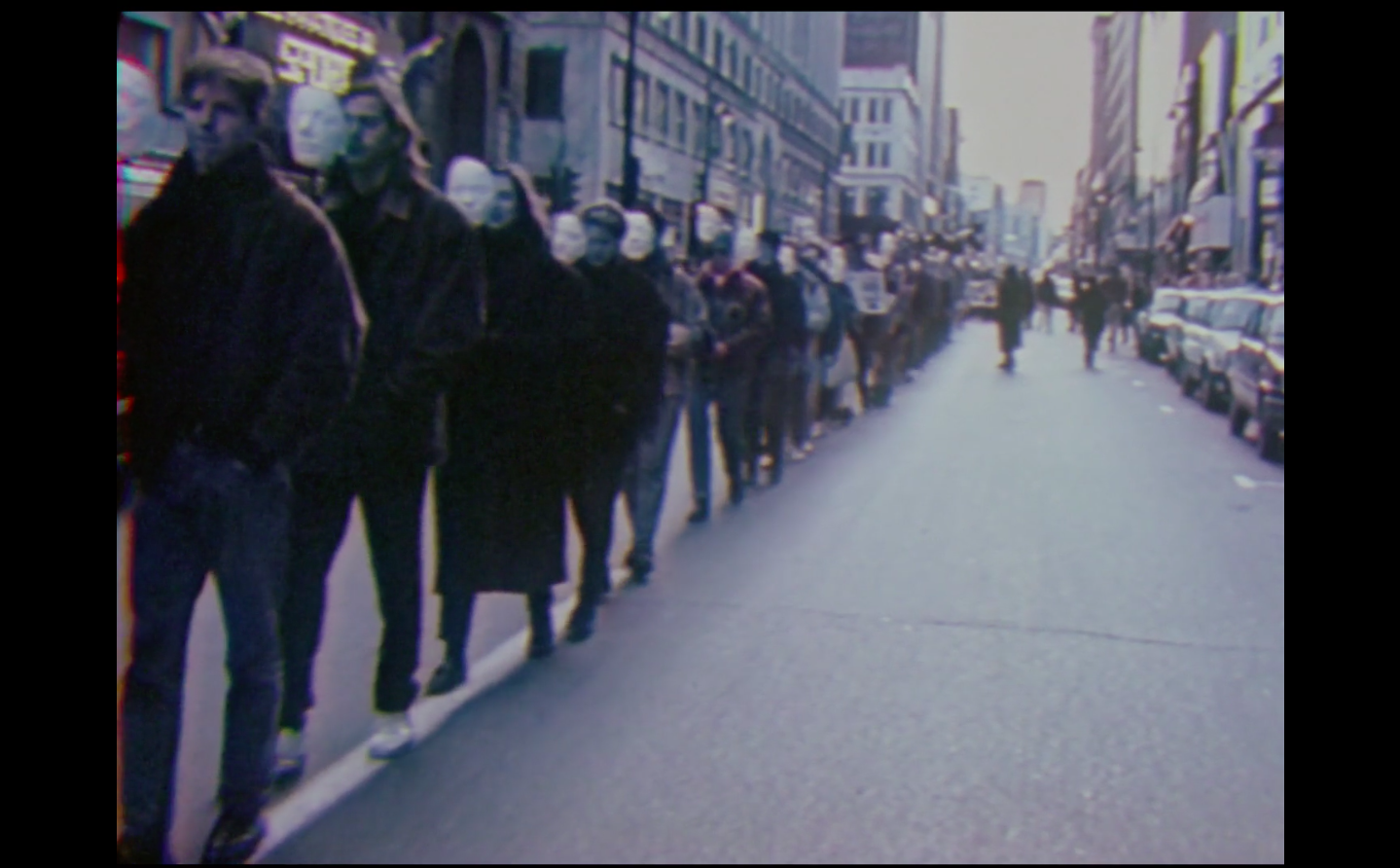 Le Singe Bleu, retitled The Measure of Your Passage in english, is a philosophical mediation on living in the face of assured death. The film is part historical research on the disappearance of Minoan civilization—similar in style to what one would see on the History Channel today—and part reflection on the mass scale of death from the AIDS crisis. Much like Le Récit d’A, Valiquette’s introspective and autobiographical approach to filmmaking renders the philosophical musings on mortality at the height of the AIDS epidemic all the more visceral. And not to be missed is the video footage from the ACT UP Montreal World AIDS Day Women’s March in 1990 towards the end of the film, as this event was often noted in our project’s oral history transcripts. This beautiful National Film Board funded featurette won a Genie award for best short documentary in 1993 and is available streaming online in french and english.
Le Singe Bleu, retitled The Measure of Your Passage in english, is a philosophical mediation on living in the face of assured death. The film is part historical research on the disappearance of Minoan civilization—similar in style to what one would see on the History Channel today—and part reflection on the mass scale of death from the AIDS crisis. Much like Le Récit d’A, Valiquette’s introspective and autobiographical approach to filmmaking renders the philosophical musings on mortality at the height of the AIDS epidemic all the more visceral. And not to be missed is the video footage from the ACT UP Montreal World AIDS Day Women’s March in 1990 towards the end of the film, as this event was often noted in our project’s oral history transcripts. This beautiful National Film Board funded featurette won a Genie award for best short documentary in 1993 and is available streaming online in french and english.
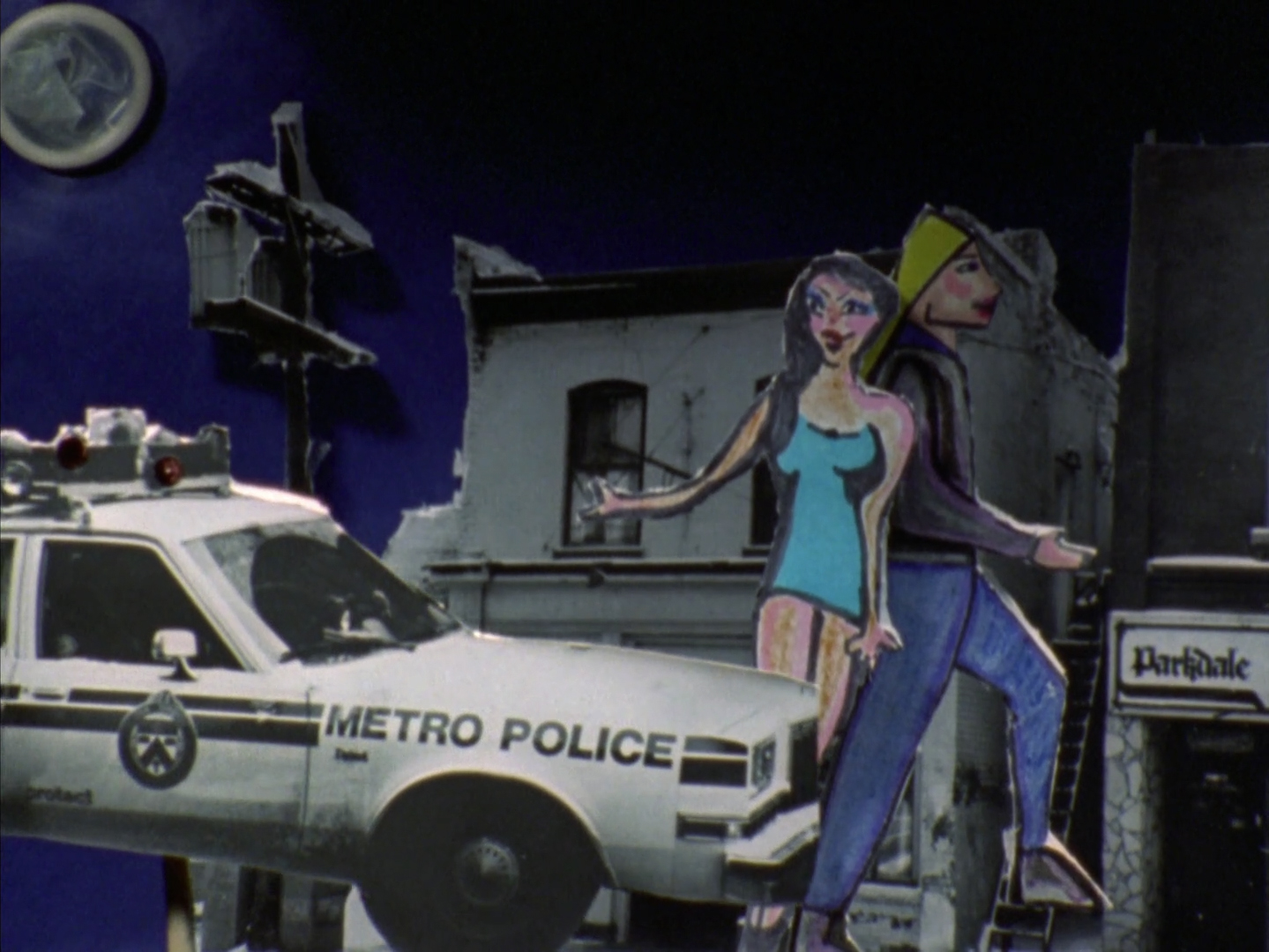 Gwendylon – Prowling By Night (1990)
Gwendylon – Prowling By Night (1990)
This twelve-minute animation film was produced as part of the National Film Board’s Five Feminist Minutes program, a compilation of short films to celebrate the 15th anniversary of Studio D. Prowling By Night animates the true stories of sex workers in Toronto’s Parkdale neighbourhood in the 1980s and highlights instances of police harassment, safe sex education, and sex worker’s rights. This film won the award for Best First Short Film at La Mondiale de films et vidéos réalisés par des femmes in April 1991. Unfortunately, the National Film Board has yet to make this video publicly available on their website.
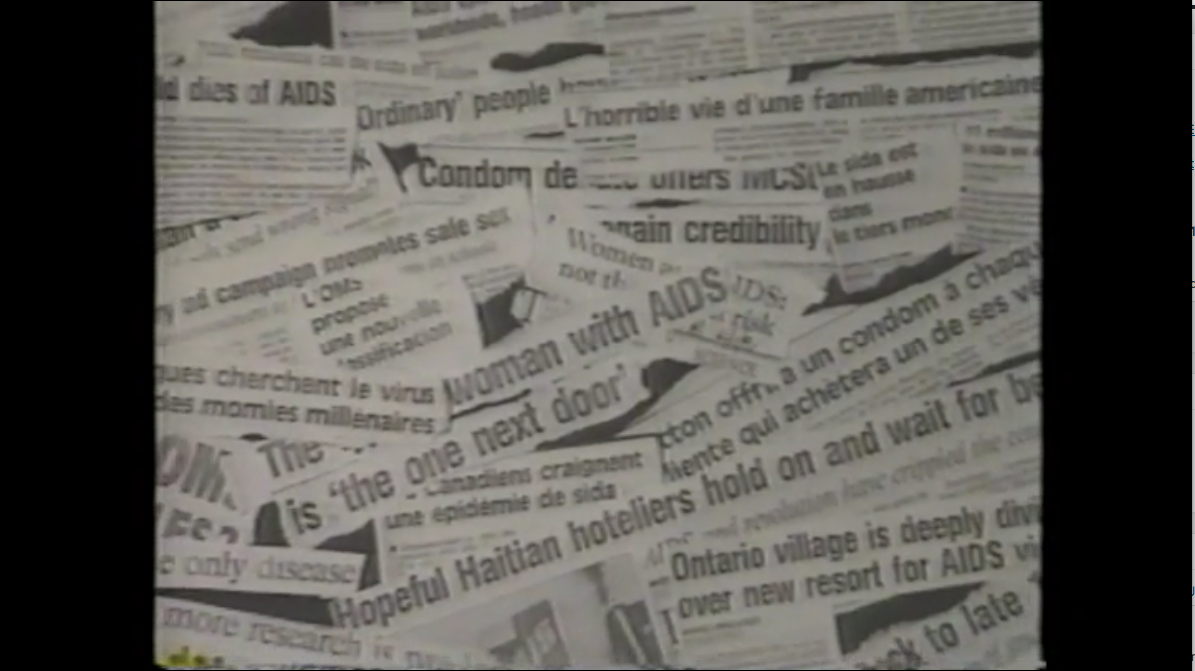 Anne Golden –Les Autres/Women and AIDS (1991); Safe Soap (1994)
Anne Golden –Les Autres/Women and AIDS (1991); Safe Soap (1994)
Les Autres begins with a scene reminiscent of Stuart Marshall’s Bright Eyes (1986), where viewers are schooled in media literacy, examining troubling mainstream media representations of HIV/AIDS. The video continues in vignettes: women in a lesbian bar discussing condoms and safer sex; two high school girls talking about sex education in schools; a woman sitting on her bed demonstrating safe sex practices while discussing sex amongst women and lesbians; ACT UP Montreal protest footage; two women from GAP-SIDA (precursor to GAP-VIES) discussing HIV prevention amongst racialized women; documentary footage from an HIV/AIDS art show. In this montage video you can also find a young Karen Herland from Réaction SIDA whose AAHP transcript can be read here.
Safe Soap was produced as part of an artist residency hosted by Michael Balser at the Banff Centre and programmed as part of the Second Generation PSA compilation (along with nine other artists). Two 30-second versions were created, one heterosexual, the other lesbian themed. More can be learned about both these two videos by checking out the AAHP transcript of Golden, available in both english and french here.
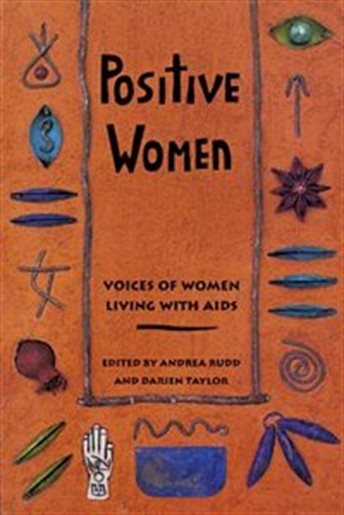
Darien Taylor (& Michael Balser) – Voices of Positive Women (1992)
This documentary features the voices of nine women living with HIV from across the globe. Based on her co-edited book with the same title, Taylor presents powerful first-person testimonials about the challenges of being an HIV+ woman in the early ’90s. Importantly, this video highlights the medical negligence and bureaucratic denial that created such grave challenges for HIV+ women in the first place. Unfortunately, this video is not available streaming online, but you can check out Vtape for more information about getting your hands on a copy.
Alison Duke – The Woman I Have Become (2007); Positive Women: Exposing Injustice (2012); Consent: HIV Non-disclosure and Sexual Assault Law (2015)
One of the most important video makers working on HIV/AIDS today, Duke has produced three community-based documentaries focused on women and HIV over the last decade. Paying close attention to the intricacies of HIV criminalization in Canada, Duke’s two most recent works provide an important overview of the debates over sexual assault law and HIV non-disclosure—particularly as it affects women and people of colour. Toronto-based Duke’s video collaborations with Women’s Health in Women’s Hands Community Health Centre and the Canadian HIV/AIDS Legal Network harken back to the artist-community organization collaborations at the heart of the short-lived Toronto: Living With AIDS cable access series from the early 1990s.